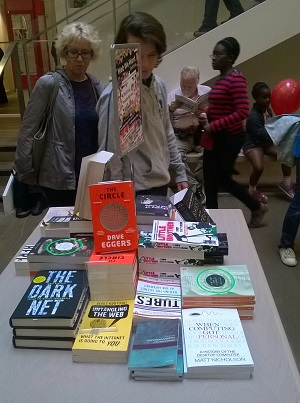The strategy of the Tories with regards to Brexit is quite clear. The idea that they might negotiate a withdrawal agreement that will satisfy both their heavily Brexiteer membership and the EU within the next few weeks is laughable. Instead they are concentrating on winning an election which they would like to take place as soon as possible after we ‘drop out’ of the EU with no agreement in place on 31 October.
Their slogan ‘Get Brexit Done’ is based on the misleading idea that, once Brexit is ‘done’, we will be able to ‘move on’ to more pressing domestic matters, such as hospitals and schools and whatever else their ‘magic money tree’ will pay for. What this disguises is that, on 1 November, some 50% of our overseas trade and 8% of our GDP will still be dependant on the EU which means we will be entering into urgent trade negotiations which could easily last decades. Instead of being ‘done’, Brexit will only just have started.
This is why the Tories want an election as soon as possible, before the full impact of a ‘hard’ Brexit becomes clear, and while the bruising run-up is still fresh in the mind. In the meantime the Tories are intent on portraying Parliament, now dominated by opposition parties, as the culprit.
What is sad is that Remainers seem intent on helping them. If they had not challenged the proroguing of Parliament then Parliament would not be sitting, and the Tories would have no-one to blame for the mess but themselves. We also would not have had what the Tories have quite successfully (and not without justification) branded the ‘Surrender Bill’ sitting there ready to take the blame.
What Remainers should be doing is questioning the Tories about what our relationship with our biggest trading partner is likely to be from November onward, and asking them how they expect to pay for their spending extravaganza. Instead that bastion of the liberal elite Andrew Marr wasted the morning quizzing Boris Johnson about his relationship with the lovely Ms Arcuri, and his colourful use of language, neither of which concern a large chunk of the British electorate.
So looks like we’re going to be faced with a general election which will effectively be a second referendum, and a Tory party that has successfully positioned themselves as ‘champions of the people’. And so it goes.
 Like a lot of people these days, I’m spending far too much time watching Netflix. There is a lot to enjoy, but one series that has stood out for me is The Chair.
Like a lot of people these days, I’m spending far too much time watching Netflix. There is a lot to enjoy, but one series that has stood out for me is The Chair.


 Recent events have brought to mind an old joke that goes something like this. It involves two vessels approaching each other on a collision course:
Recent events have brought to mind an old joke that goes something like this. It involves two vessels approaching each other on a collision course: In 1948, the renowned scientist Albert Einstein co-authored an
In 1948, the renowned scientist Albert Einstein co-authored an 





